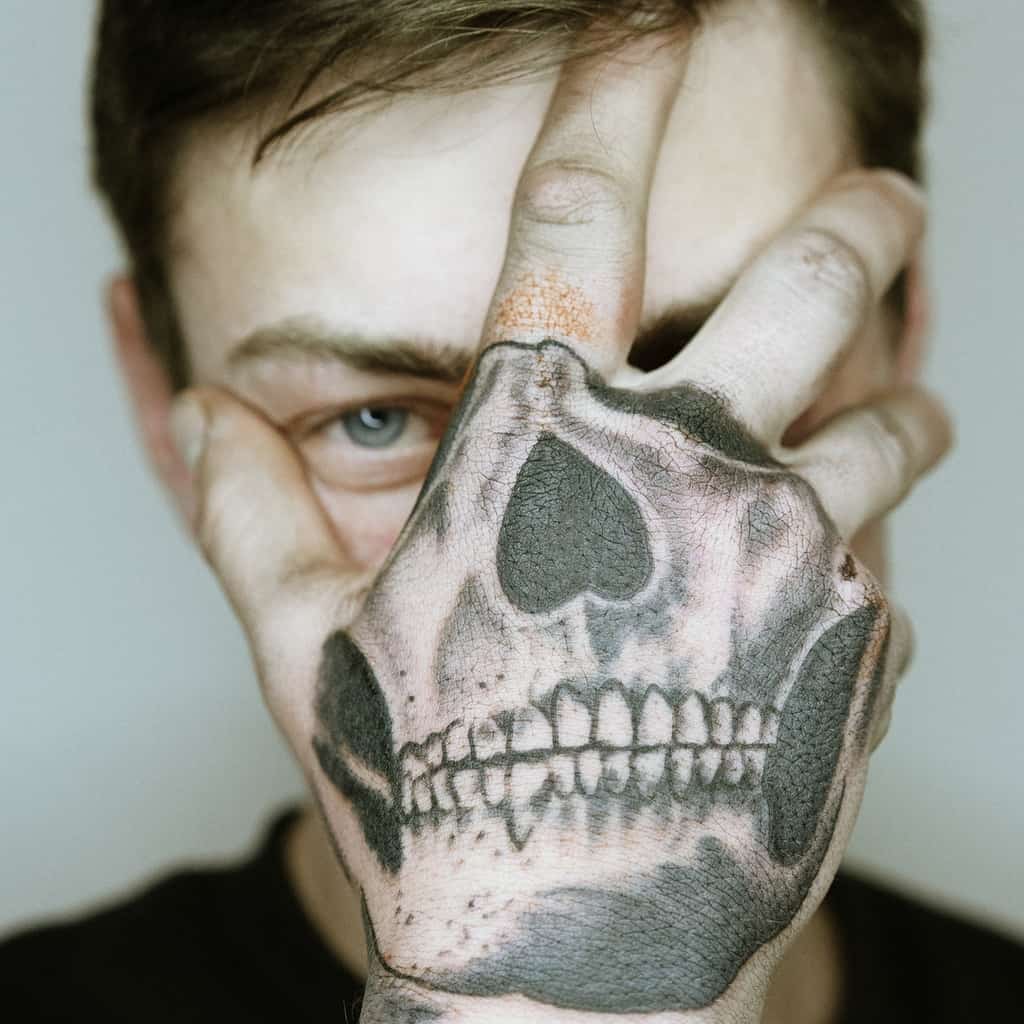
The skull has remained a popular symbol for centuries. When you see a skull tattoo, you might think that it represents something dark or evil.
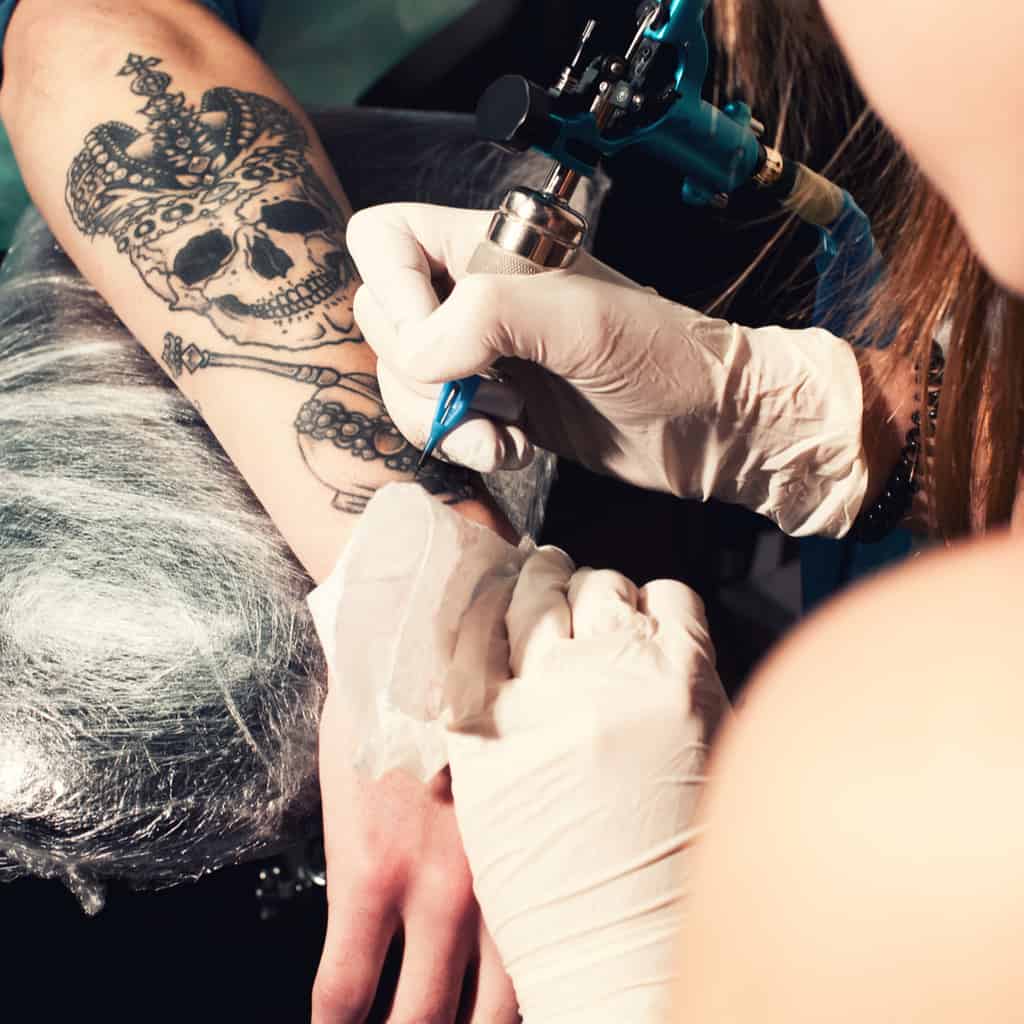
While this may be the case sometimes for some people, the skull symbolizes a lot more than that. So, what is the meaning of the skull tattoo and should you consider getting one inked?
Skull Tattoos for All People
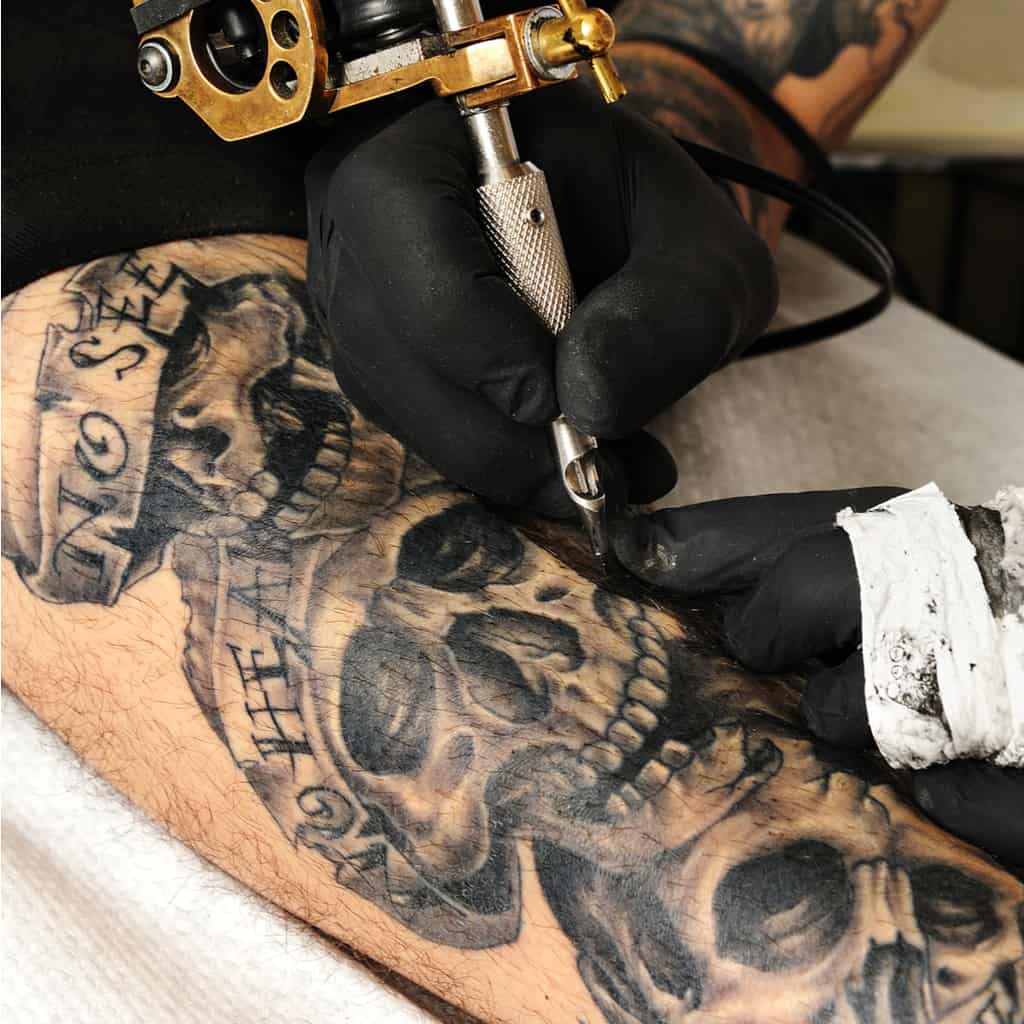
The skull is a good tattoo design because it is quite simple for most tattoo artists to do.
It looks great when outlined heavily, but also lends itself to delicate shading too. The skull is also a universal symbol and has meaning to all human cultures.
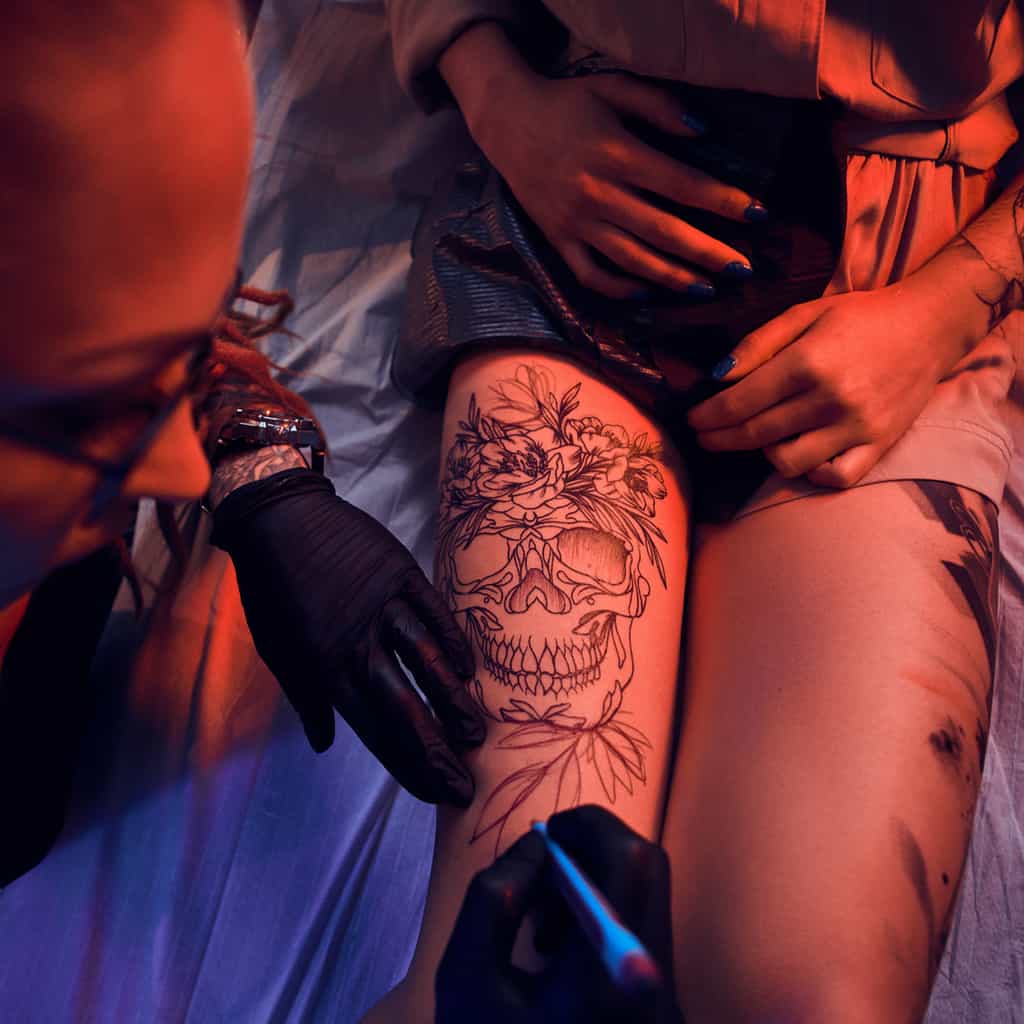
Here are some of the most common meanings:
- Good or Evil
- Life and Death
- Transience and Human Mortality
- The Passage of Time
- Intellect and Consciousness
- Strength and Power
- Change and Transformation
- Overcoming Adversity
A Reminder of Our Own Mortality

On a biological and physical level, the skull is powerful because it is what we associate with our own death. It is the last thing to decay and has often taken on a powerful meaning in literature.

Just think about Hamlet and the soliloquy where he is holding Yorick’s skull. In this context, the skull is a painful reminder of our own mortality.
The Skull and The Rebel

You don’t need to look very far into popular culture to see that the skull still takes pride of place in some areas.
Pirates may not be like they are often depicted in books and on movie screens, but the skull and crossbones appeals to many people because it’s association with pirates.
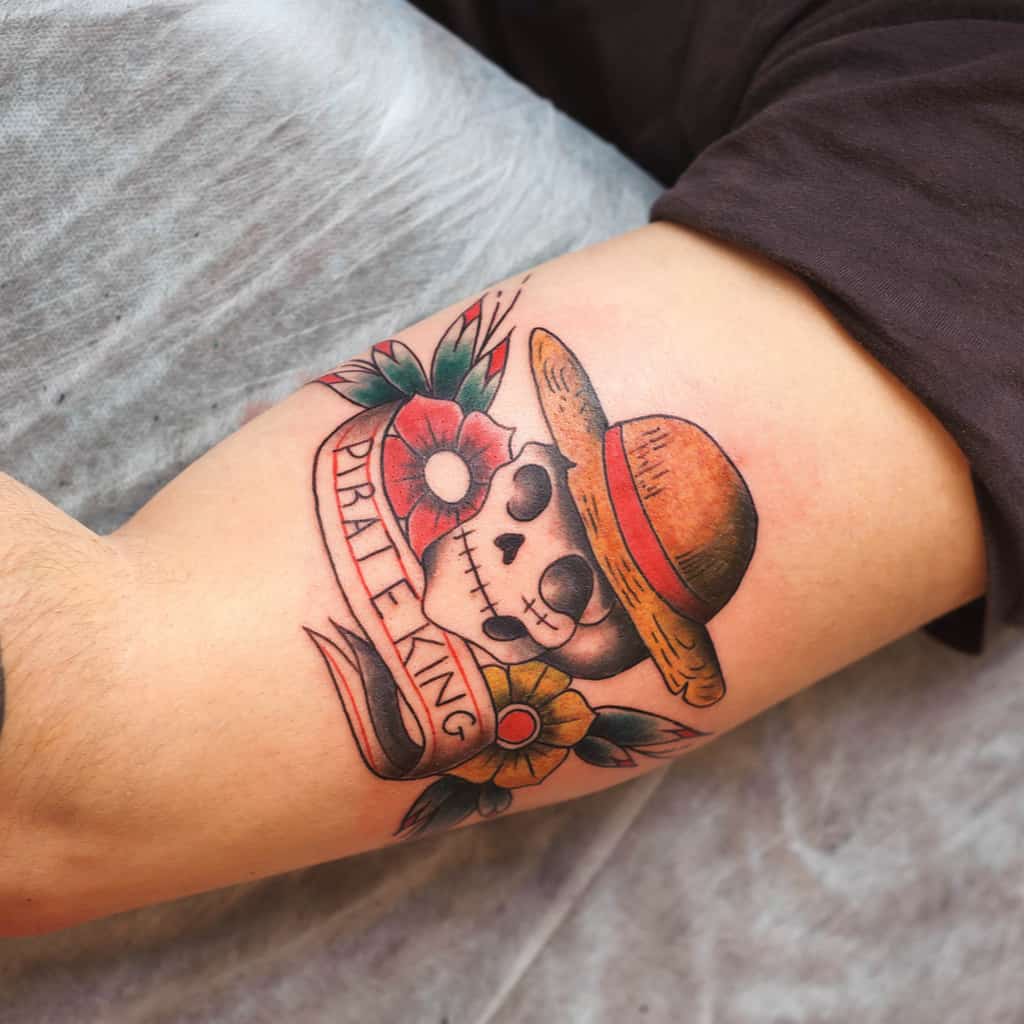
Liberally interpreted, the pirate under the flag of the skull and crossbones represents the kind of freedom and anarchic liberation that many of us truly desire in our lives.
In this sense, the skull also represents rebellion and freedom from oppression. The pirates sail the seas wherever they please and loot at will.

This association with the rebel is also popular in TV shows such as Sons of Anarchy. The skull is also used in many motorcycle gang insignias.
Just think about the flaming skull of the Hell’s Angels Motorcycle club, as a great example of how the skull is often associated with freedom, rebellion, a life on the highway, and the underworld.

It’s clear that for many people, the skull as a symbol of rebellion and freedom from everyday oppression might be incredibly enticing.
For those of us who crave personal freedom, or those who have certain political leanings, the skull tattoo may have profound meaning. For others, there may be some inevitable draw to the skull as a symbol of danger and toxicity.
Religious Meanings
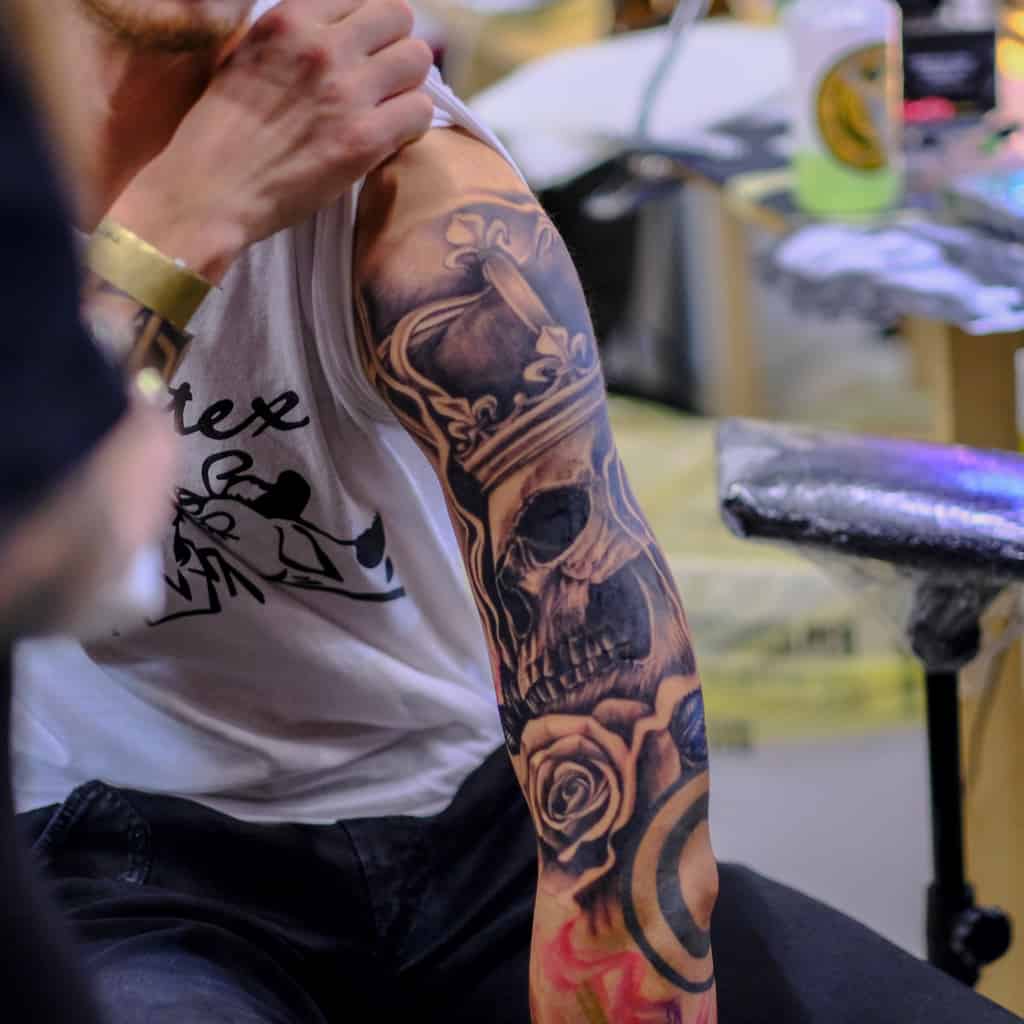
Though one might interpret the skull as something dark and perhaps even evil, there is plenty of skull symbolism in religious tradition.
In the Christian spiritual tradition, the skull is a symbol of eternity. In death, the soul leaves the body and the bones are left behind. The skull represents this transition and is a reminder that we are all God’s children and will live in eternity.

In the Jewish Kabbalah, the skull is not so much a dark and morbid image, as it is a representation of human rebirth.
The skull here is also tied to those who have passed and provokes a sense of memory and recognition of the person who has passed.
The Buddhists, too, venerate human remains. As the seat of the intellect and the sense, the skull is a potent symbol for human life and for human death.
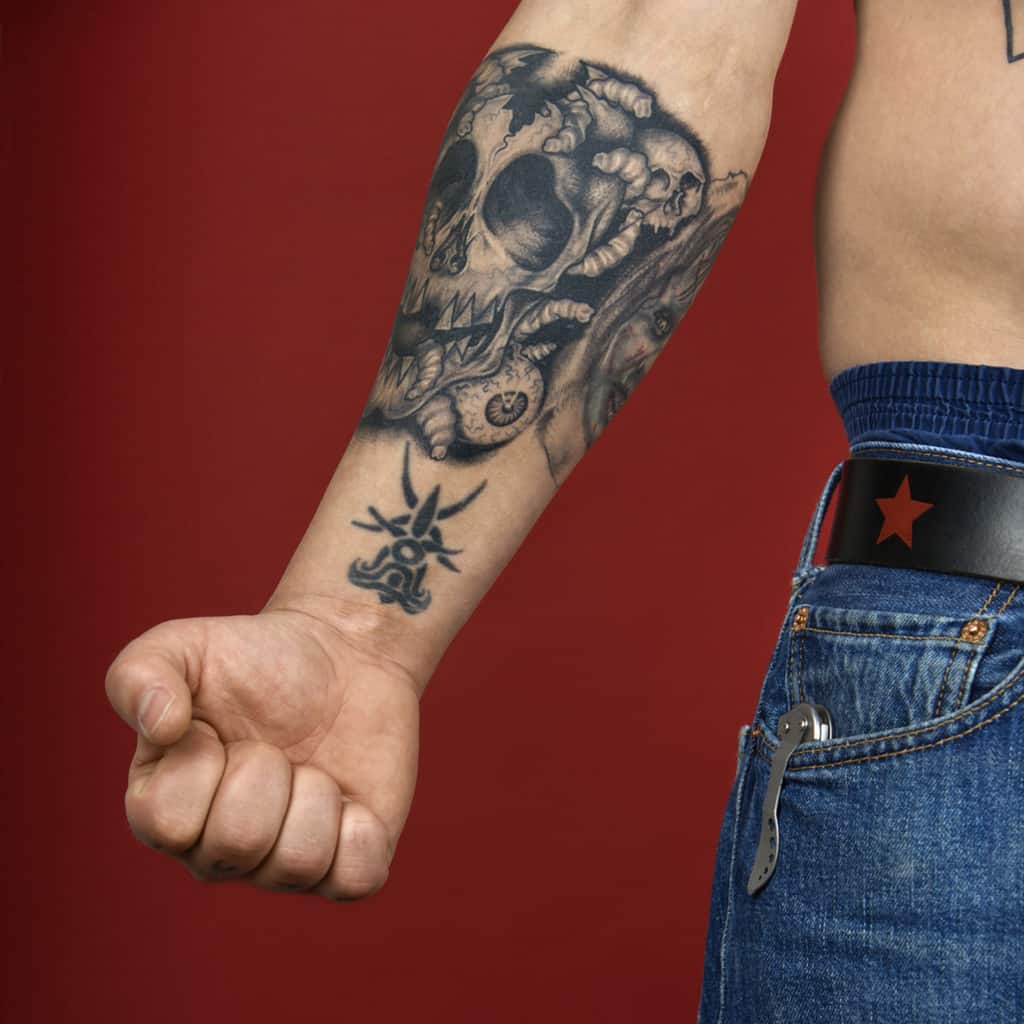
Across many cultures and religions, the skull represents the promise of rebirth and is a reminder to all those left behind that even after death, something solid is left behind. Even as the flesh decays, the hard bones remain and can be preserved.
A Celebration of Life

Though it’s tempting to focus on the skull as a representation of death and our own mortality, the Mexicans prefer to celebrate life.
The Day of the Dead is an important occasion in Mexican culture. This is when families and their children prepare so-called candy or sugar skulls.

The skull is heavily decorated with images of flowers and butterflies. It is also heavily colored.
During the Day of the Dead, the skulls symbolize our ties to our ancestors and are a celebration of them and their achievements. It is also a day to celebrate the vibrancy of life.
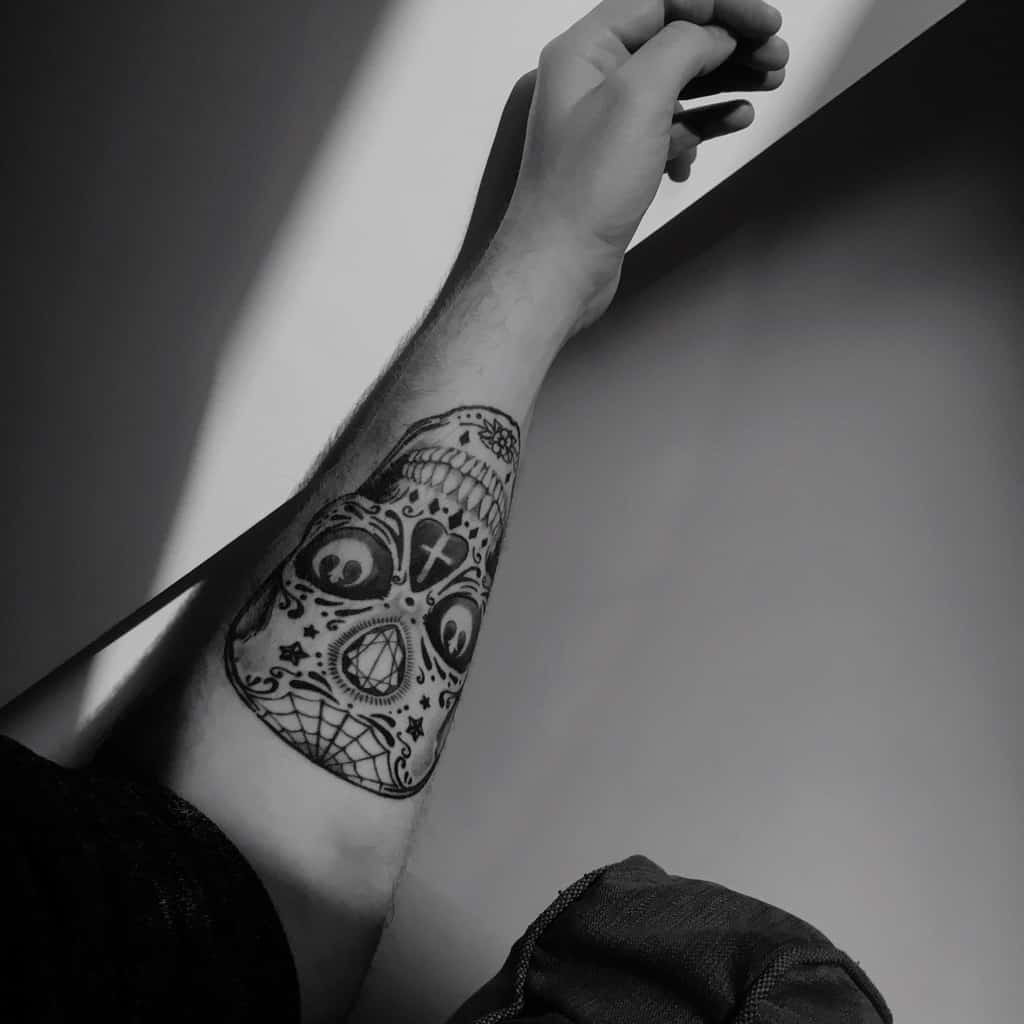
The sugar skull tattoo design is very exceptionally popular. In this design, the image of mortality is allied with softer and more feminine images.

The vibrant sugar skulls are ideal as tattoos and would suit people who have a Mexican background and those who have a profound sense of the joy of life.
Types of Skull Tattoos

The skull has a universal appeal and has many potent and profound meanings. In this sense, getting a skull tattoo done speaks of the timelessness of the skull.
Fortunately, there are many types of skull tattoos out there. Here are just some of them and their meanings:
Sugar Skull Tattoo

As discussed previously, the sugar skull is important in Mexican culture as a way to remember the dead and celebrate life.
Death’s Head Skull Tattoo
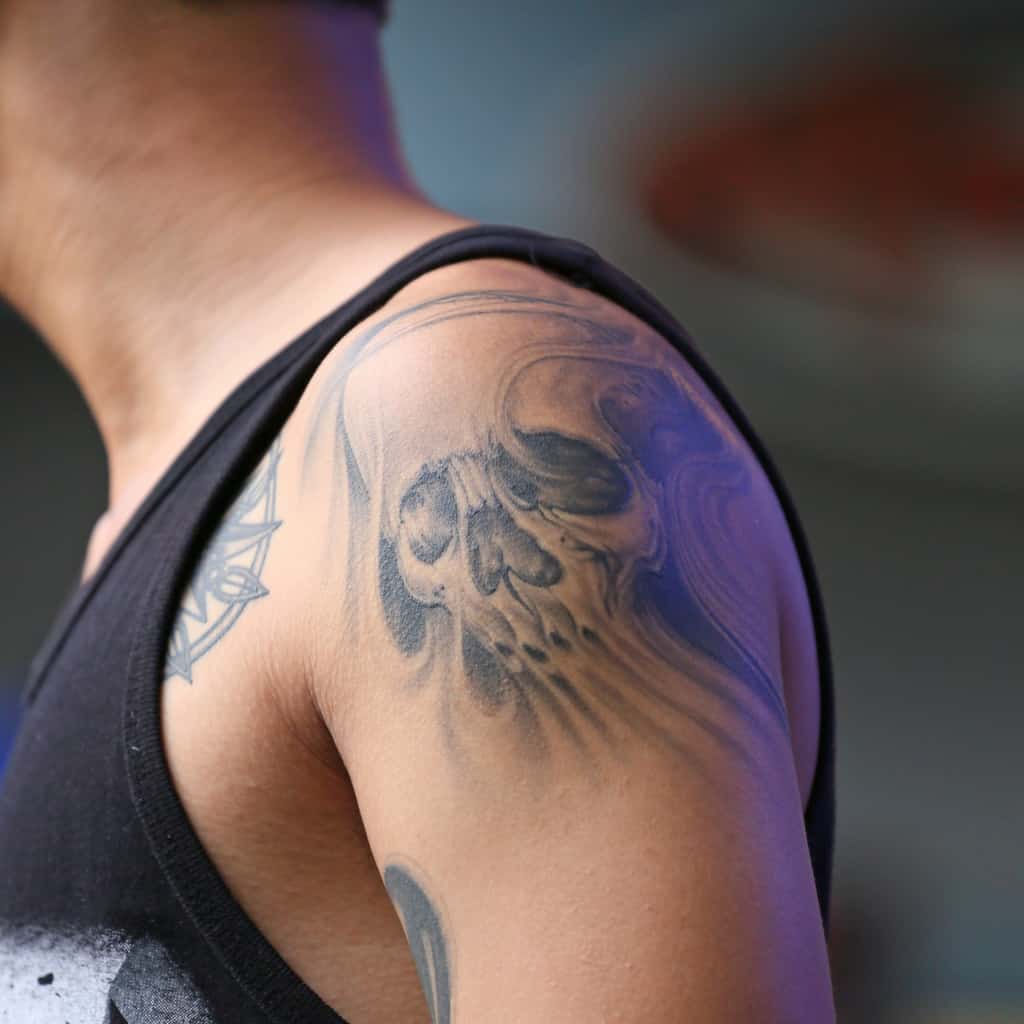
This is the tattoo to get if you have some affinity with the dark sides of the skull. The Death’s Head doesn’t have a lower jaw and is a symbol of amoralism or moral flexibility.
Skull with a Rose Tattoo

Yet another popular design, the skull holding a rose in its bony jaw symbolizes the balance and harmony between life and death.
Skull and Serpent Tattoo
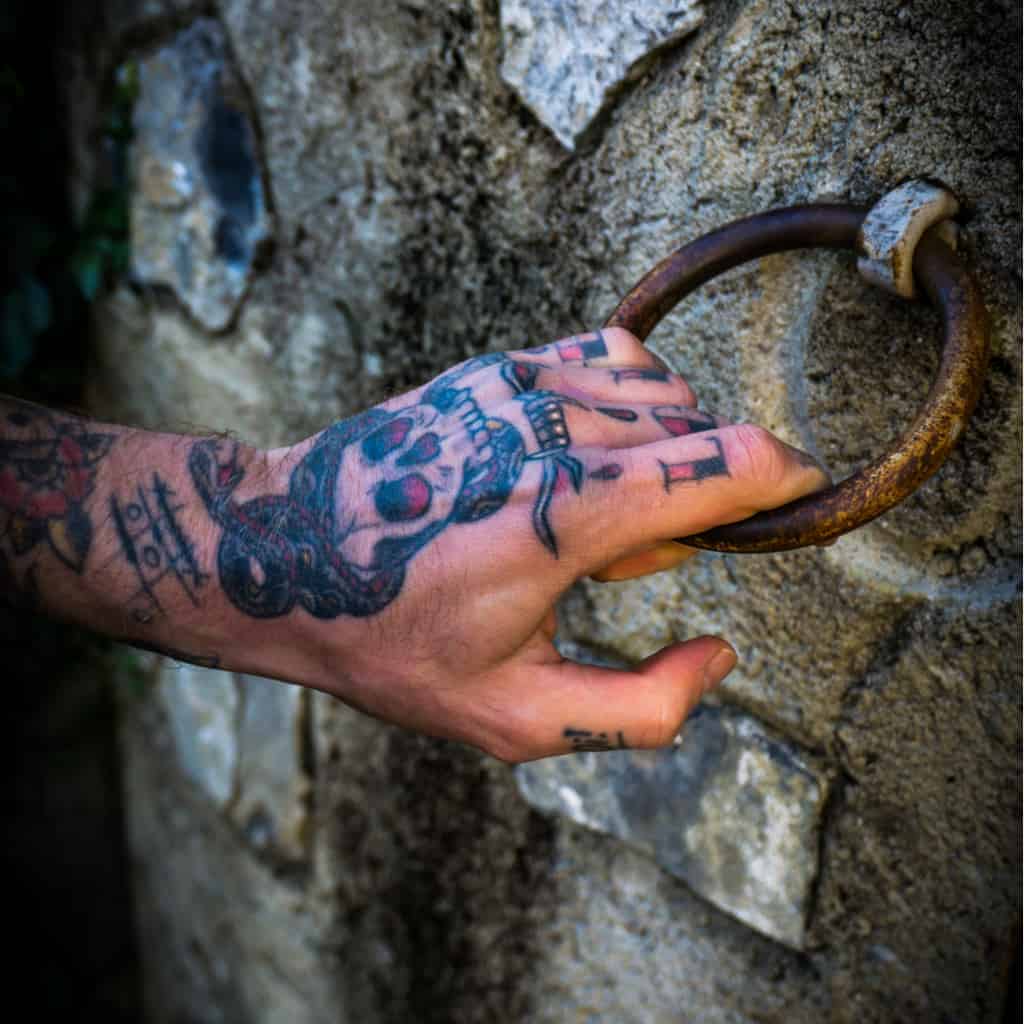
The serpent symbolizes knowledge or secret knowledge. When combined with the skull, the two combine to symbolize knowledge beyond death.
The Reaper Skull Tattoo
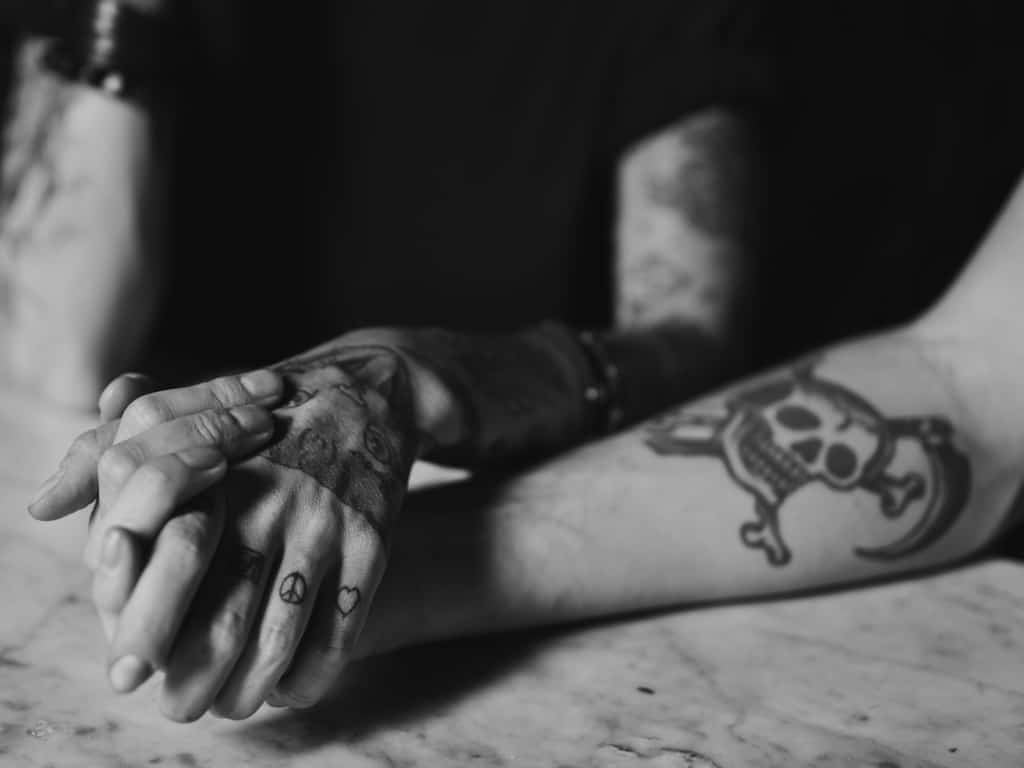
The Grim Reaper is a symbol that we’re all aware of. It represents the finality of death in the form of the hooded Grim Reaper. A reaper skull represents both the finality of death and the mystery of the circle of life.
Conclusion

The skull is one of those symbols that is timeless. It represents many things and appears in countless cultures and their spiritual traditions.
From our ancient ancestors to pirates in movies and on TV, the skull remains a potent symbol. It also looks great in ink.

